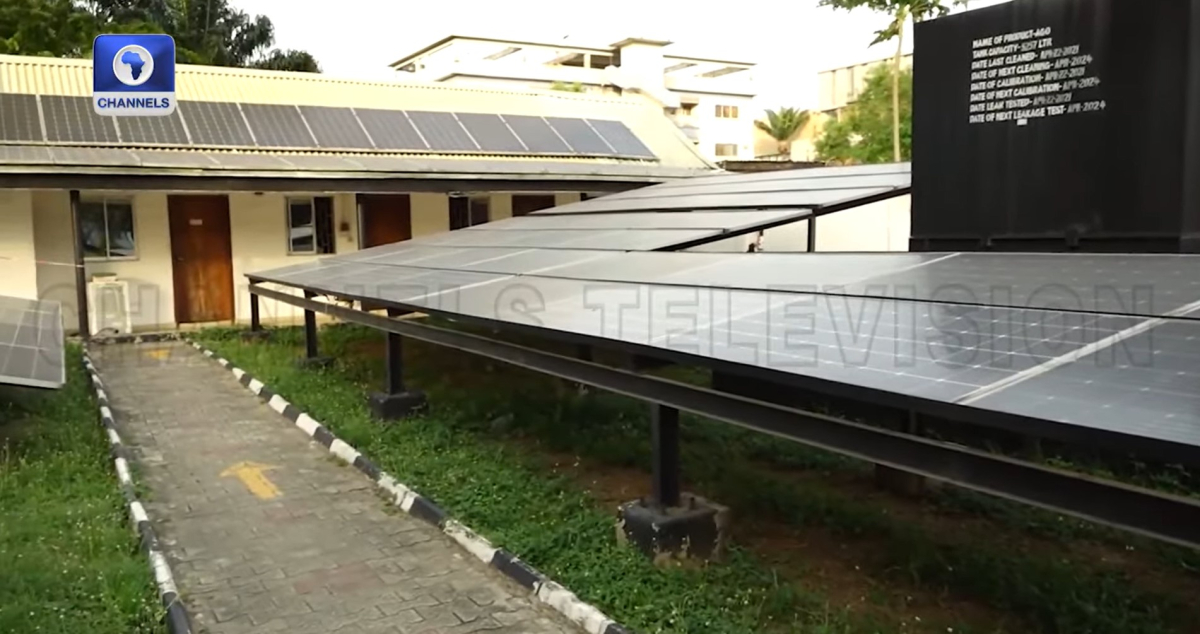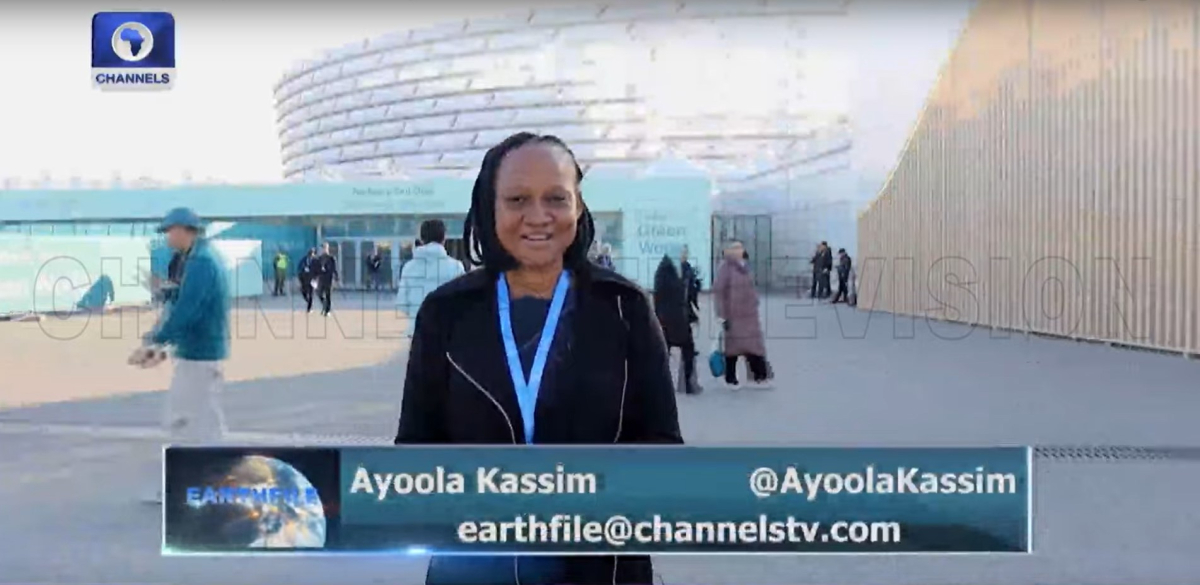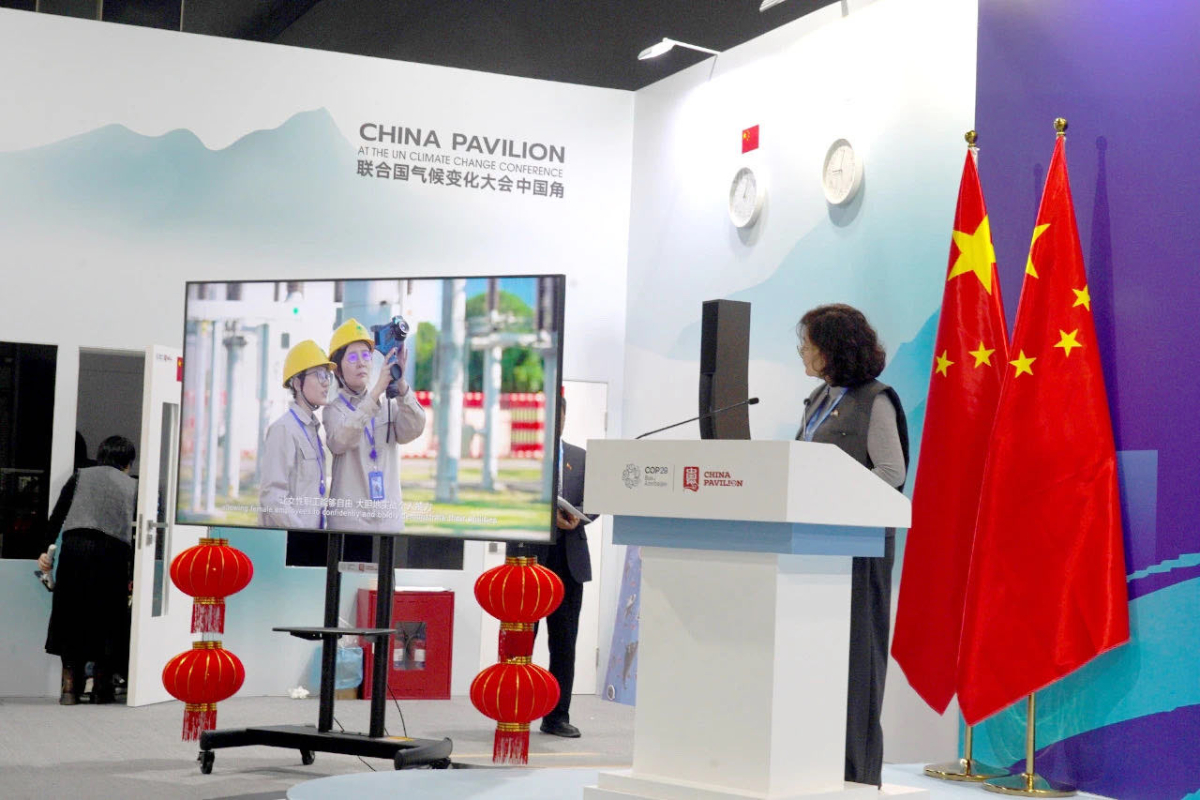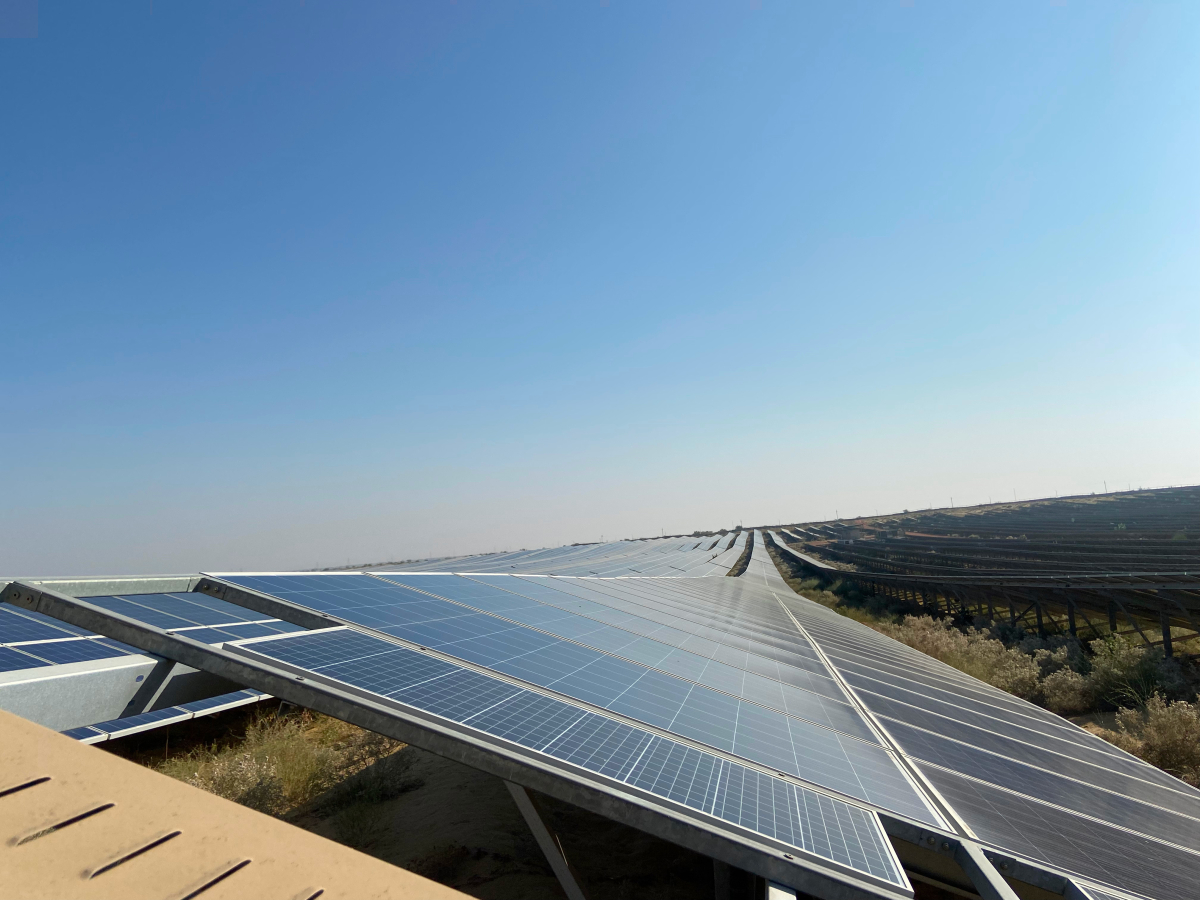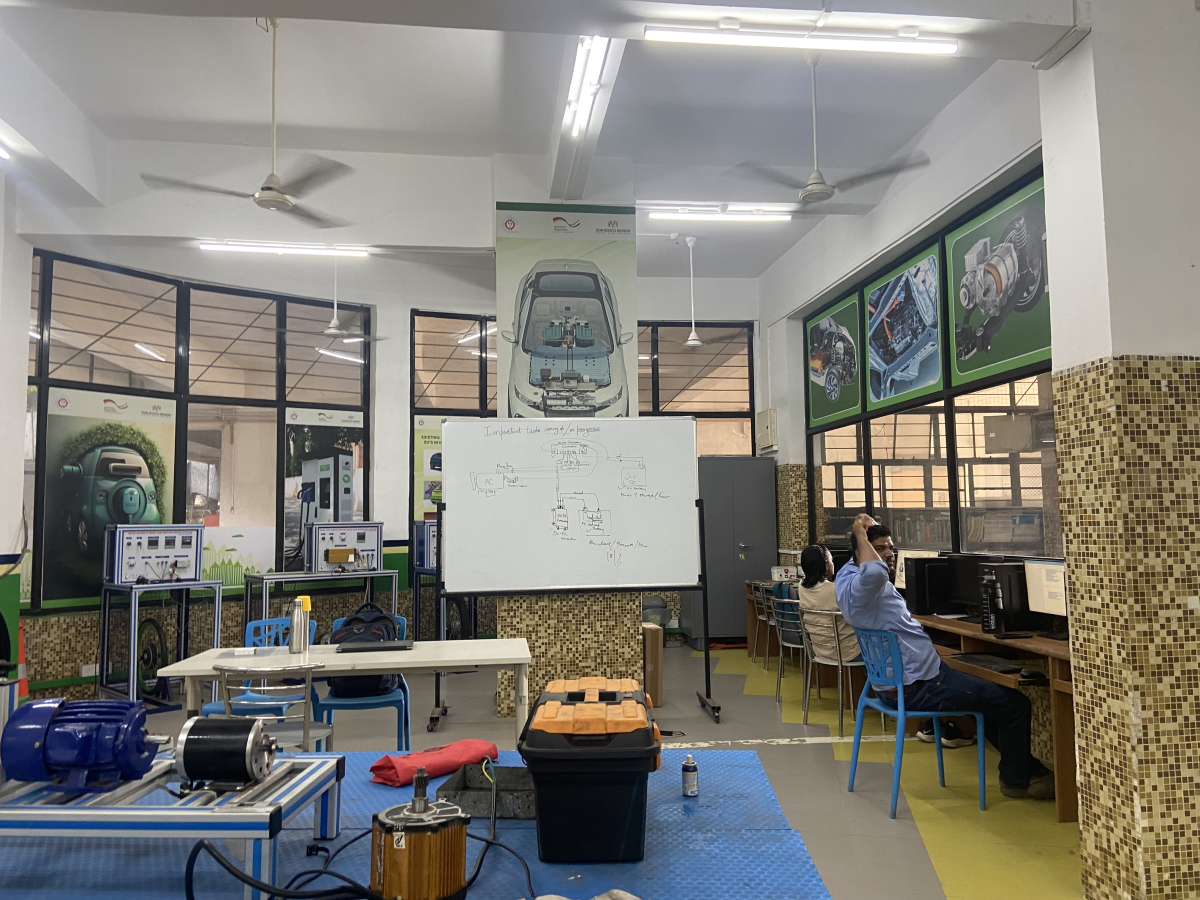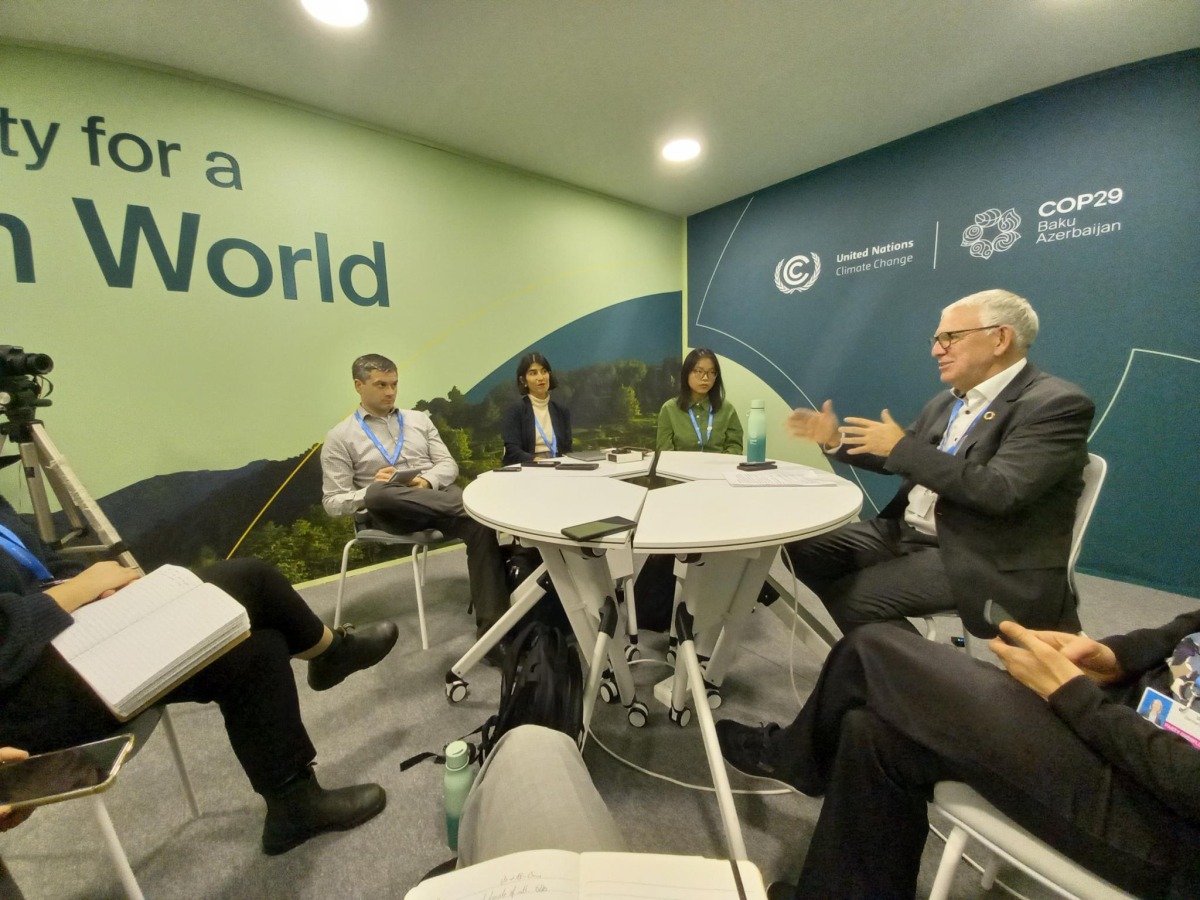Skills shortage growing challenge for global energy transition
Jobs for the energy transition
Contents
The journalists participating in the COP29 Cross Border Energy Transition Reporting Fellowship come together before, during and after COP29 in November 2024 as a ‘cross-border newsroom’ focusing on the green workforce. This dossier was updated as they finished and published their stories, to link to the work in their home media and on Clean Energy Wire.
How can Nigeria manage the energy transition?
Ayoola Kassim (Nigeria) – Channels Television
Ayoola will focus on whether and how her home country can build up the skilled workforce required for renewable energy projects. How does a growing African economy like Nigeria attract the required financing? How do decentralised mini grids, which are pushed in the country, affect the workforce? She will also look into efforts to teach the necessary skills at a specialised academy.
> Green energy enabling skills for the energy transition workforce
More efforts are needed to overcome the challenges that hinder the scaling up of renewables in Nigeria. The country for instance faces grid outages, a shortage of skilled solar technicians and many of the existing workers struggle to keep to installation standards. Ayoola takes a closer look at off-grid solutions in Nigeria, such as mini grids.
> COP29: Leveraging technology to provide clean energy for rural communities
Small-scale solar, batteries for rent, and tailored service packages and payment plans for all age groups and people in remote locations are crucial to ensure energy access for the population of Nigeria. “We need the supply chains, we need the policies, but we also need climate finance,” researcher Priti Parikh of University College London told Ayoola.
Women’s role in China’s energy transition
Yuhan Niu (China/UK) – Dialogue Earth
Yuhan will take a closer look at gender equality in China’s energy transition. She will be zooming in on the particular challenges and efforts to tackle them, including the effects on women of China’s involvement in renewables projects abroad, for example under the Belt and Road Initiative.
> How can China’s renewables sector take steps towards achieving gender equality?
Data transparency and a commitment from businesses could help improve representation and begin eliminating barriers faced by women.
Green and Black: Renewable jobs in oil-rich Nigeria
Michael Phillis (U.S.) – Associated Press, AP
Michael will look into the fast increase in jobs and demand around small-scale solar energy installations. At the same time, he will examine the obstacles companies must overcome to provide large-scale industrial solar energy in fossil-fuel dependent Nigeria. The difficulties are thwarting what could be a vibrant clean energy workforce in the continent's most populous country.
> Nigerians press for solar jobs and electricity, with little success
Large-scale solar PV developers have not been able to overcome Nigeria’s reputation as a risky place to do business. It is a problem across sub-Saharan Africa, where 83 percent of the people in the world who lack electricity live. Despite tremendous solar potential, very little of it has been installed. However, there is a boom in smaller systems, and the micro-solar industry also requires a big workforce at a time when Nigeria’s young population needs jobs.
How will the new climate finance target impact energy transition jobs?
Tais Gadea Lara (Argentina) – Climática, InfoAmazonía
Tais will report on how this year’s key COP issue – the new climate finance target – is related to green workers. How will the new target influence the energy transition in recipient countries?
She will also explore whether the national climate plans (Nationally Determined Contributions, NDCs) – to be updated ahead of COP30 next year in Brazil – consider workers.
How inclusive are India’s green energy projects of local communities and women?
Roli Srivastava (India) – Climate Home News, The Migration Story
India’s green transition risks leaving behind some of the country’s most marginalised communities, owing to societal barriers they face given the remote location of projects, lack of facilities and poor access to skilling opportunities rooted in their poor education. Roli focuses on how the gender question is being discussed at COP29, and how India could plug the gap of involvement of these communities, with a special focus on women.
> Social barriers risk leaving women behind in India's greener future
Social barriers make it tough for women to work in the solar sector in India, thwarting what could be a vibrant clean energy workforce in the world’s most populous country. Experts are calling for more attention to green skills and gender in global climate politics, as countries face an increasing shortage of skilled labour.
> Germany and India join forces to bridge the green skills gap – but youth might not engage
By Roli Srivastava and Milou Dirkx
Anti-immigration sentiment and global competition challenge Europe’s green transition workforce
Milou Dirkx (EU/Germany) – CLEW
Milou will examine how the need for green workers affects labour migration – both inside Europe and in third countries. Is the EU ready to face the talent drain from other world regions? What are the consequences for countries if Europe poaches their talents with green skills? Are there tensions due to the rise of anti-immigration populist parties in Europe?
They may rail against immigration and climate action on stage but behind the scenes, far-right leaders across Europe welcome labour migrants who are needed for the continent’s energy transition. To fill its rapidly widening skill gaps, Europe increasingly competes with other world regions, while the rise of anti-immigrant parties deters highly skilled migrants, who can afford to choose their destination. As companies’ demand for qualified workers continues to grow, they are set to put increasing pressure on politicians not to hamper labour migration. One way to ease the worsening skills shortage is to make much better use of the often undervalued qualifications of resident migrants.
Effects of climate adaptation measures on jobs in Europe’s construction sector
Julian Wettengel (EU/Germany) – CLEW
Julian will assess the current state and future prospects of the construction sector workforce in the context of climate change adaptation. Do companies have this on their radar? Is sufficient labour force available and does it have the skills needed for implementation?
> Lack of skilled workers could delay climate-proofing Europe’s homes and cities
Europe's ageing buildings are particularly vulnerable to the damaging effects of climate change, with homes increasingly threatened by floods or at risk of becoming unbearably hot to live in. The job of adapting the spaces where Europeans live to better withstand rising temperatures and more frequent extreme weather events is set to be made even harder by a lack of construction workers with the right expertise. Companies already face a severe shortage of skilled labour as they struggle to introduce low-emission building practices and more sustainable materials. Industry representatives say that the impact of climate adaptation has yet to emerge as an important issue. Researchers warn that a lack of skills and knowledge could jeopardise urgently needed measures.
Further articles from the fellowship
During their time at COP29, the journalists collaborated on stories beyond the topic of the green workforce.
India, donor countries give up on Just Energy Transition Partnership – German official
by Roli Srivastava and Julian Wettengel
India and a group of countries including the U.S. and Germany will not agree on a so-called Just Energy Transition Partnership (JETP), a key international deal that was meant to promote the South Asian nation’s climate-friendly transition. A German government official said that the two sides had agreed to not pursue the JETP any further, which would have included financial and technical support to help India move away from fossil fuels like coal. Experts said that years of difficult negotiations had shown that India, the world’s most populous and increasingly energy-hungry country, was not interested in a deal focused on a coal phase-out, which could have pushed it to take on more debt. Instead, future cooperation should prioritise financing for renewable energy expansion.
More from the team at COP29:
Tais Gadea Lara: El Gobierno de Milei retira a la delegación argentina de la COP29: ¿qué implica realmente?
Ayoola Kassim: COP29 collection by Channels Television
Michael Phillis: Trump’s against climate action. But some right-wing governments are all for it
Roli Srivastrava: India fires warning shot with rejection of finance deal at COP29
Yuhan Niu (Fermín Koop): COP29: Hostile climate talks end with a new finance target – and fury


